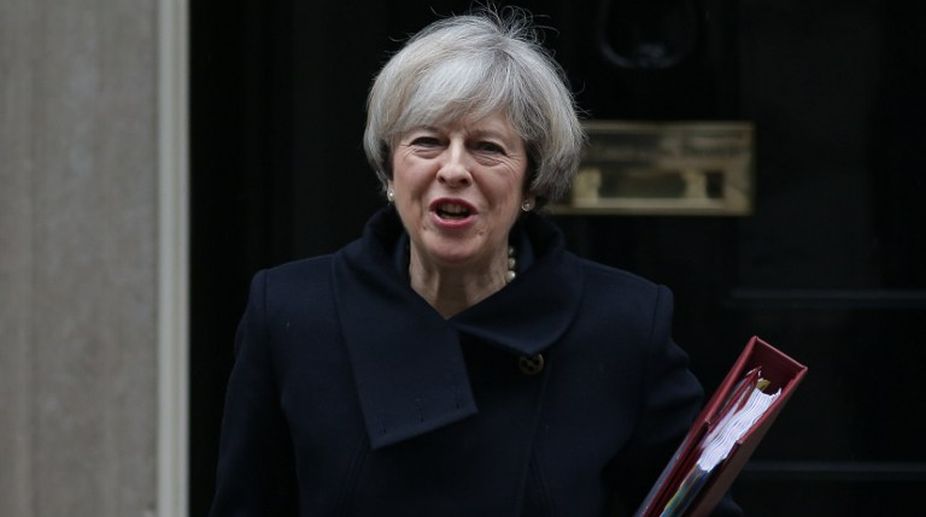“The future belongs to India”: UK Businessmen remark after meeting Madhya Pradesh CM
Madhya Pradesh Chief Minister Mohan Yadav held talks with businessmen from the UK to boost investments in his home state.

Theresa May (Photo: AFP)
It would be premature still to speculate on whether Brexit is on course to attain fruition. Suffice it to register that Theresa May has recovered from the blow suffered in the Supreme Court of the United Kingdom which had directed the concurrence of Parliament on the issue. The voice of the legislators was accorded precedence over that of the people in a referendum. It thus comes about that the backing of the MPs, which was uncertain till a few weeks ago, has now been extended and convincingly so. Members of the House of Commons have overwhelmingly supported the triggering of Article 50 with 498 votes to 114.
On closer reflection, the House has voted more emphatically than the referendum. Almost as a coincidence, the Prime Minister has unveiled the long-delayed Brexit White Paper which reaffirms that “Parliament has remained sovereign throughout our membership of the EU despite people not always feeling like that”. More accurately, the concurrence of the Commons and the subtext of the White Paper signify an institutional victory of the legislature seven months after the referendum had its way, however marginally. With more power to her elbow, Ms May is eventually in a position to begin talks by the end of March on ending more than four decades of European integration, verily one of the most critical events in Britain’s political history since World War II. Indeed, Britain today bears witness to the unfolding of a momentous phase in its political, economic, and constitutional history. Of course, the Bill will now be forwarded to the House of Lords, which does boast opponents of Brexit. But the country’s constitutional tradition would suggest that the unelected Upper House concurs with the Commons, in the event of a clear majority on an issue. In a sense, there has been a turnaround on the part of the Commons, where 50 per cent of the members had preferred to “Remain” before the referendum on 23 June last year on whether to quit the European Union. Much as the parliamentary endorsement has been a shot in the arm for the “Leave” camp within the Conservatives, this week’s developments have had a deleterious impact on Labour. In the immediate aftermath of the Commons’ vote, Labour leader Jeremy Corbyn, if a critic of European integration, has instructed his party MPs to vote and allow Brexit negotiations to start British history is in a flux, but there is eventually a certain clarity in the emerging trends.
Advertisement
Advertisement